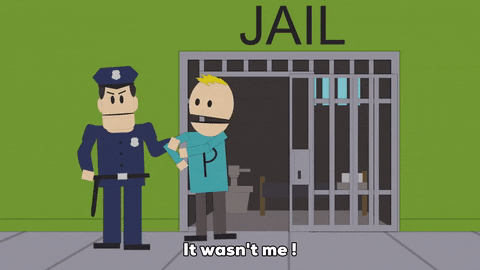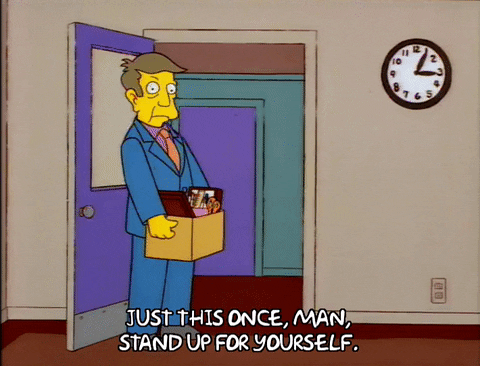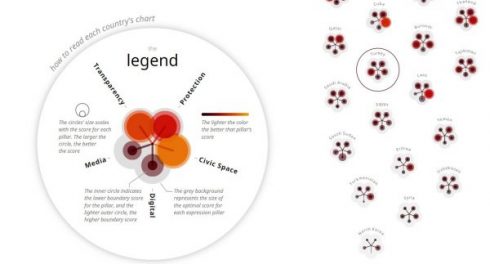Highlights
- Treasure hunting
- Jailtime blues
- Viral loading public trust
- Building integrity
- Digital survival
- What’s mine, ain’t yours
- Language barrier
- TAI Spotlight: Transforming natural resource governance
Treasure hunting

Photo Credit: Aloka Vihara
Last week, we flagged the pandemic’s push of millions back into poverty. Now, Sanjeev Gupta and João Tovar Jalles further break down the budgetary impacts of the pandemic and inter-related potential to implement tax reforms to ease the pain. Their Center for Global Development colleagues, Chris Lane and Eleni Smitham, urge those reforms include a turn to health taxes for improved health outcomes and helping raise much-needed revenue. Looking to global solutions, prize-winning economists urge President Biden to push for fair taxation of multinationals through an ambitious global minimum corporate tax.
Another way to boost revenue is to boost compliance of existing taxes. To that end, Denmark’s tax agency is looking to increase staff working on tax avoidance by 1,000 workers over the next three years. It’s hard to imagine Luxembourg choosing to apply similar vigilance, so why does the E.U. not consider Luxembourg a tax haven?
Having digested last week’s FACTI panel report, Martin Sandbu urges G7 and G20 to lift financial integrity higher up their agenda and clean up global finance before we can build back better. For inspiration, Andres Knobel might suggest a look at Belgium which has a valuable beneficial ownership verification system, although he recommends improving its public access. Meanwhile, Cyprus announces plans to launch a beneficial ownership register in coming months – no doubt investigators are salivating at what they might uncover along the lines of what they could do with Luxembourg’s data via OpenLux.
Looking economy wide, how much can a country benefit from data transparency? Megumi Kubota and Albert Zeufack discover that not only does improving data transparency reduce external borrowing costs for a country, the return is much higher when combined with stronger institutional quality and lower public and external debt.
Essential listen: The Chinese Debt Situation in Africa
Credit Researcher, Mark Bohlund, discusses ongoing Chinese debt relief talks in several African countries, as well as debt deferrals with the IMF and lack of progress with private creditors.
Jail time blues

In the last TAI Weekly, we noted U.S. Secretary of State Anthony Blinken honoring whistleblowers. This week he laid out U.S. foreign policy priorities and was upfront on problems of lack of transparency, trust, rising corruption that weaken democracy, including at home.
Less inspiration across the Atlantic. A former French president and former defense minister were both convicted of corruption this past week, while Austria was rebuked by the Council of Europe for “persistent lack of progress” on corruption.
Talking of rebukes, the U.K.’s reputation is in the eye of a storm as the Open Government Partnership censured the country for failing to live to its pledge to improve transparency and accountability. U.K. Open Government Network Chair, Kevin Keith says: “The U.K. government’s reputation for openness and accountability is in freefall.”
Viral loading public trust
Corruption allegations hound Filipino government officials for purchasing millions of personal protective equipment (PPEs) at overpriced rates. Francis Isaac and Joy Aceron calls for a thorough accounting of the Philippine government’s COVID-19 funds and for greater transparency in its dealings with Chinese biopharmaceutical company, Sinovac.
At the global level, Transparency International calls for integrity and transparency in COVID vaccine delivery. Vaccine queue-jumping undermines trust and governance in Lebanon and corruption continues to threaten Cambodia’s success in containing the virus.
Building integrity

Some cause for optimism as the Open Contracting Partnership begins supporting twelve diverse research teams in analyzing equity and effectiveness in public procurement to strengthen democratic governance and accountability.
The city of Bogotá, already a leader in open contracting, joins the Construction Sector Transparency Initiative with plans to bofost infrastructure transparency, participation, and accountability of several high-value projects.
Talking of infrastructure monitoring, youth in Plateau State, Nigeria, mobilized the community to pressure officials to get a contractor to return to a vital road-building project and continue to monitor construction progress. This is one example of the work done by 68 young changemakers trained by Yiaga Africa in recent months under the Bounce Corruption program.
Digital survival
Lucy Bernholz and Toussaint Nothias wonder if free assembly can survive the Internet, while Benjamin Bellegy considers the digital revolution effects on philanthropy. He argues that philanthropy must put human rights at the centre of tech developments and enable citizens to be involved in shaping digital societies.
The 100 Questions Initiative is moving beyond solution-driven thinking and putting data-centered questions first on a variety of issues. Their goal is to ensure integrity and rebuild public trust in the fight against COVID-19.
Accountability Lab talk to the experience of hosting data literacy workshops in Nepal to help professionals engage in evidence-based policymaking and boost importance of open data.
What’s mine, ain’t yours

The pandemic seems to be (understandably) fueling resource nationalism, according to new research by Verisk Maplecroft. That might be further bad news for mining tycoon Dan Gertler (now free from sanctions), who is playing for time to keep his oil/gas blocks in the Democratic Republic of Congo despite no active steps to their development.
Elisa Peter shares the Publish What You Pay experience of reconsidering their network strategy amid-COVID. Elisa highlights why reflection and adaptation are so important. Her proactive approach would resonate with Hannah Barker and Amy Cuffley who highlight four ways funders can support strategic adaptation by nonprofits. Now, most are out of the initial pandemic induced flight or fight mode.
One form this can take is to extend collaboration to mergers. Scott Warren suggests ways organizations can join forces to create broader and deeper impact. For their part, Hal Beckham, Jessica Dreher, and Donna Scheck at the Medtronic Foundation share how to build resiliency in time of crisis, while Cecilia Ljungman examines what such collaboration could mean for evaluation.
Language barrier
Are we culpable of linguistic gaslighting? UNHCR urges that inclusion and diversity in the workplace extend to reflection and attention to possible linguistic biases against non-native speakers.
Pat Scheid of TAI-member Hewlett Foundation kicks off a series of blogs digging further into the #shiftthepower conversation and offers five paths for more equitable relationships benefiting Southern partners.
Finally, Dutch Ministry of Foreign Affairs partners with the Global Fund for Community Foundations to invest in local giving “as an expression of voice, civic participation, solidarity and dissent” from Brazil to Burkina Faso to Palestine.
Other stories
- Decolonizing global health assistance through listening: Part 1 and Part 2
- Political finance regulations as a catalyst to promote inclusive democracy: #ChooseToChallenge gender inequality in politics
- Next gen donors: Impacting philanthropy for generations to come
Essential call I: ¡Ayúdenos a avanzar en el uso de datos extractivos en Colombia!
Attención – organizaciónes con sede en Colombia que trabajan en la rendición de cuentas y/o participación en el sector minero! Envíen sus ideas hasta el 31 de marzo para avanzar en el uso de datos de extracción sobre: las regalías mineras, inclusión de género, participación de comunidades étnicas y/o la respuesta y la recuperación al COVID-19.
Essential call II: Please share your thoughts in this survey on natural resource governance priorities. Your views and voice are key to shape the future of natural resource governance.
TPA Full Disclosure: Yvonne Darkwa-Poku on apathy and strengthening civic space

Yvonne Darkwa-Poku is a human rights lawyer and Senior Program Officer on MacArthur Foundation’s On Nigeria program. Before joining the Foundation, she worked extensively in sub-Saharan Africa to combat a wide range of threats to human rights and development and has engaged youth at the pan-African level to assume leadership in the fight against human rights violations. We had an interesting conversation with Yvonne on the need for an African-led movement on cross-generational change and strengthening civic space and civic participation.
TAI Spotlight: Transforming natural resource governance
Transforming natural resource governance | Transparency and Accountability Initiative (TAI)
Read our three-part blog series with the Brookings Institute’s Leveraging Transparency to Reduce Corruption project, the Natural Resource Governance Institute, and Results for development on the future of natural resource governance. Check out the first, second, and third blog.
Making web’s open-source infrastructure more equitable | Ford Foundation and Open Society Foundations
TAI members, Ford Foundation and Open Society Foundations join other foundations to launch a $1.3million grant towards making the web’s open source infrastructure more equitable, sustainable, and secure.
Making the most of organizational assessments | Hewlett Foundation
Organizational Effectiveness Officer at the Foundation, Jennifer Wei shares key findings from their recent organizational assessment landscape scan, especially how to make the most of organizational assessments to become stronger, healthier organizations.
Ensuring wide economic impact | MacArthur Foundation
A new case study by the Foundation’s grantee, Presidential Advisory Committee Against Corruption, reveals how addressing corruption at a high level and shifting norms can improve lives for a wide range of people.
Job listings
- CoST fundraising consultant — March 15, 2021
- Policy and Projects Manager at ONE – Ongoing
- Senior Policy Advisor for Civic Space at Oxfam America – Ongoing
- Job postings at Hewlett Foundation – Ongoing
- Job postings at MacArthur Foundation – Ongoing
- Job postings at Open Society Foundations – Ongoing
- Job postings at Luminate – Ongoing
- Job postings at Ford Foundation – Ongoing
Calls/Opportunities
- West Africa Civil Society Institute (WACSI) call for papers and articles – Open year-round
- USAID’s Development Innovation Ventures (DIV) grant funding – Ongoing
- Call for research proposals Tax and civil society – No Deadline
- Free Digital Security Training – Ongoing
- Call for proposals: Informality, tax, and the state – Proposals accepted on a rolling basis
Calendar
- Integrity Action research findings: sustainability in social accountability – March 9, 2021
- Creating impact in a volatile world: Lessons learned from the front lines – March 10, 2021 (2-3 PM ET)
- USAID democracy, human rights, governance annual learning forum – (March 10, 11, 16, 18, 2021)
- Moving Mindsets: The ways minds can shift – March 12, 2021 (1:00 PM ET)
- World Bank civil society policy forum (Virtual) – March 22-April 11, 2021
- What are the key tools and approaches to build infrastructure back better? – March 25, 2021 (2-3.30pm GMT)
- Virtual convening of Frontiers of Social Innovation: “People, Power, Resources: Enacting an Equitable Future” – May 11-13, 2021
- Frontiers of Social Innovation – May 11-13, 2021
- Open Gov week (Virtual) – May 17-21, 2021


